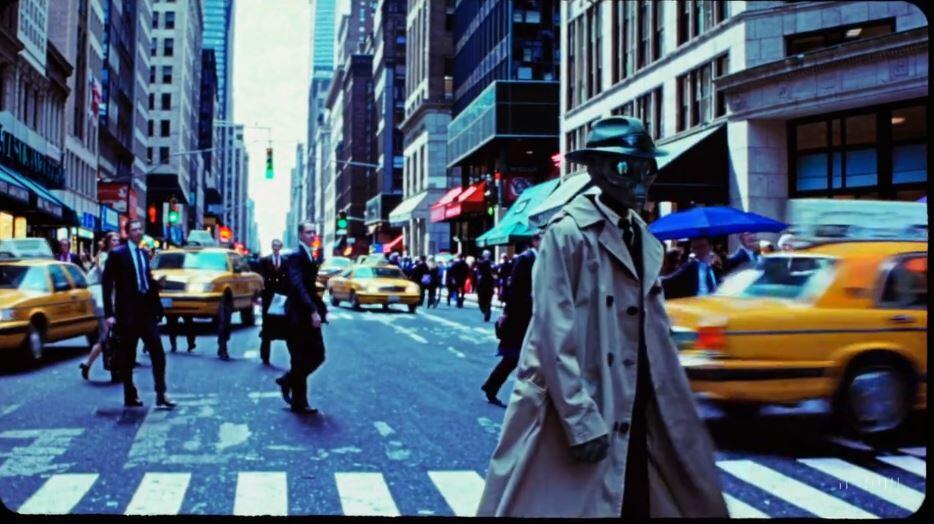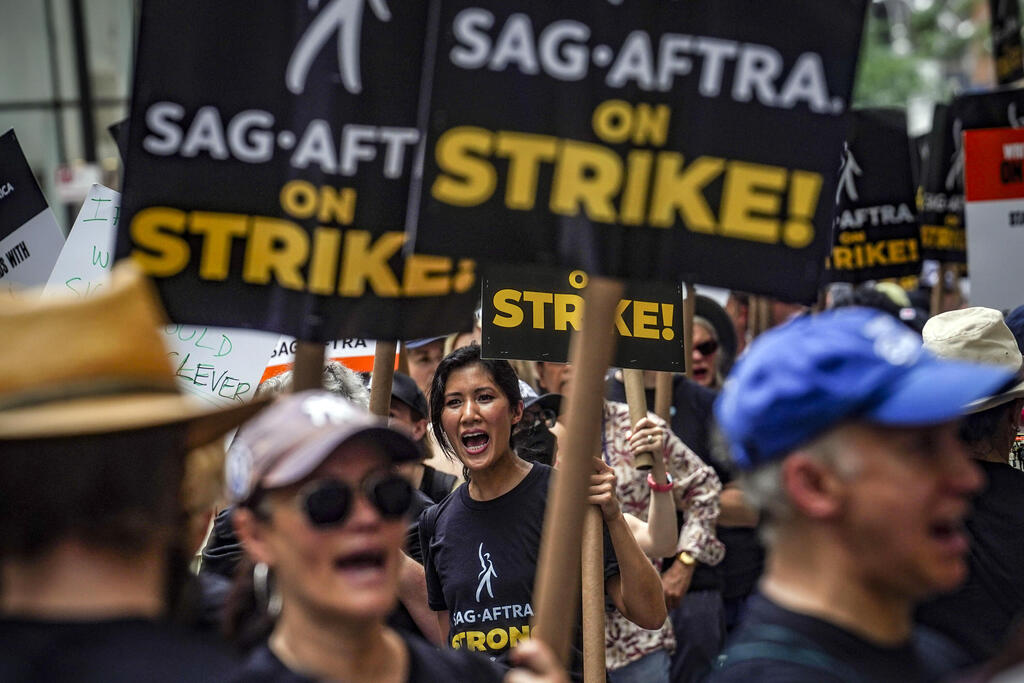Getting your Trinity Audio player ready...
Well before AI platforms like MidJourney and ChatGPT took the world by storm, an Israeli team of creators asked a bold question: can artificial intelligence enhance filmmaking without compromising the creators or the art itself? What began as an ambitious idea evolved into a complex experiment involving experts from five countries, cutting-edge technology provided by Lenovo, and ten months of trial and error that blended artistic creativity with innovative technology.
(A movie in AI)
The result? The animated documentary "Water Tower Murder", which aired on Kan, Israel's public broadcasting network. The film follows private investigator David Tidhar, Israel’s first private detective, as he unravels a 1937 murder case in Tel Aviv—the killing of engineer Yaakov Zwanger. Through AI-powered animation, the film reconstructs the investigation, revealing a web of Nazi spies, Haganah Zionist paramilitary assassination squads, and double agents.
Over 20 different technological tools were used in creating the film, from producing animation to composing an original score and restoring archival footage. The film not only broke new technological ground but also sparked significant debate about the ethical, societal, and professional implications of AI’s role in cinema.
"We didn’t want to reinvent the wheel; we just wanted to integrate existing tools in a smart way," explained Oded Farber, one of the film’s two directors (alongside Daniel Najenson), and Tamir Naim, the project’s AI lead, in an interview with Ynet. Farber and Najenson began their journey after realizing that AI’s ability to create stunning, imaginative images could also extend to moving content like video.
"Daniel and I wanted to create a moving, visually engaging video that tells a story. We started by creating a music video based on a song by one of our collaborators, just to test the technology’s storytelling potential," Farber shared.
"Our goal wasn’t to showcase a technological achievement but rather to use technology to tell a better story. But in the process, we also managed to achieve a pretty significant technological milestone," he laughed. "At the same time, ethical questions naturally arose, like: ‘What does it mean to use AI in cinema?’ or ‘Will it replace artists? Does it kill creativity?’ These are questions you can’t ignore when working in this field today."
So, what are your conclusions? Will AI replace humans?
"Humans have always feared being replaced by machines, and in some industries, that has indeed happened—from elevator operators replaced by buttons, to software that sends emails instead of postal workers delivering letters," said Farber. "But even so, humans have always maintained a unique role, and the same applies to filmmaking."
According to Farber, AI is a tool that serves the artist and is unlikely to fully replace humans. "For instance, actors like Matt Damon, who can draw audiences to a film simply with their name and acting skills, will never be replaced. On the other hand, AI can help make the entire filmmaking process faster, more efficient, and more accessible—allowing creators to focus on the art rather than the bureaucracy."
AI boundaries in filmmaking
One of the key challenges Farber and Najenson faced was using archival materials for the film. "We could restore and animate old photos, but we were concerned that it might compromise authenticity and the audience’s trust. The question was how to use the technology in a way that respects truth and history," Farber explained.
The greatest concern, he noted, is AI’s ability to rewrite history. "AI allows for the editing of historical records in ways that could be manipulative. There’s a saying that ‘history is written by the victors’—AI could take that to an even more extreme level. We’ve already seen glimpses of this in the current conflict in Gaza and the ‘fake war’ aimed at influencing historical narratives."
Get the Ynetnews app on your smartphone: Google Play: https://bit.ly/4eJ37pE | Apple App Store: https://bit.ly/3ZL7iNv
Where is cinema headed, in your opinion?
While many in the industry are apprehensive about the growing role of technology in filmmaking, Farber and Naim believe that, although AI will undoubtedly reshape cinema, it will not replace the artists themselves. "AI won’t replace humans, but humans who know how to use AI will replace those who don’t learn to use these tools," said Naim.
"AI presents enormous opportunities alongside significant challenges, and ultimately, it all depends on how people use it. As artists and filmmakers, our goal isn’t to create viral videos but to produce meaningful, high-quality cinema that moves and inspires. AI is just a tool—and it all depends on whose hands are holding it."



